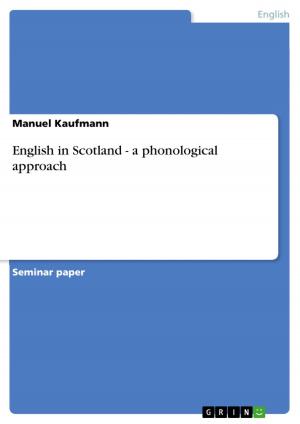Mythology and reality in Githa Hariharan's 'The thousand faces of night'
Fiction & Literature, Literary Theory & Criticism, British| Author: | Kader Aki | ISBN: | 9783638518680 |
| Publisher: | GRIN Publishing | Publication: | July 8, 2006 |
| Imprint: | GRIN Publishing | Language: | English |
| Author: | Kader Aki |
| ISBN: | 9783638518680 |
| Publisher: | GRIN Publishing |
| Publication: | July 8, 2006 |
| Imprint: | GRIN Publishing |
| Language: | English |
Seminar paper from the year 2002 in the subject English Language and Literature Studies - Literature, grade: gut , University of Cologne (Anglistik), course: Myth and History in the Writing of Indian Novelists in English , 12 entries in the bibliography, language: English, abstract: 'The Thousand Faces of Night' is not just a womanist novel but it is a definite feminist writing in which myths are revisioned, rewritten, and retold from a female point of view. The focus of the novel is on the inner lifes of women, the 'inner spaces' are reflected in detail. The analysis on hand sets its central focus on the relation between myth or stories and the women in the Novel. It presents how the female point of view differs from the male discourse, especially by contrasting myths form the Mahabharata with stories from the Sanskrit. A brief explanation about Manu is included, as well as a rudimentary interpretation of Gita Hariharan's use of metaphors are included.
Seminar paper from the year 2002 in the subject English Language and Literature Studies - Literature, grade: gut , University of Cologne (Anglistik), course: Myth and History in the Writing of Indian Novelists in English , 12 entries in the bibliography, language: English, abstract: 'The Thousand Faces of Night' is not just a womanist novel but it is a definite feminist writing in which myths are revisioned, rewritten, and retold from a female point of view. The focus of the novel is on the inner lifes of women, the 'inner spaces' are reflected in detail. The analysis on hand sets its central focus on the relation between myth or stories and the women in the Novel. It presents how the female point of view differs from the male discourse, especially by contrasting myths form the Mahabharata with stories from the Sanskrit. A brief explanation about Manu is included, as well as a rudimentary interpretation of Gita Hariharan's use of metaphors are included.















